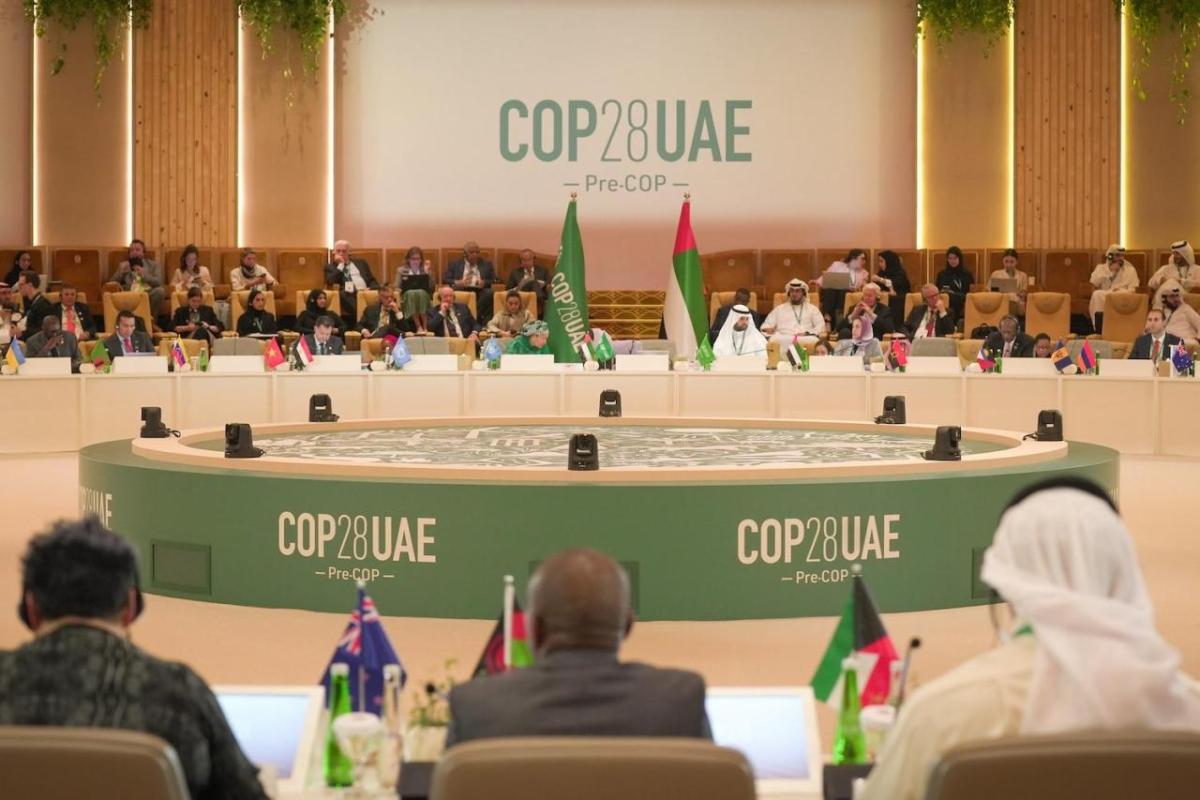Companies Can Do More To Help Everyday People Reduce Emissions
Words by Ellen Jackowski

Originally published on TriplePundit
This year, the build-up to the United Nations annual Conference of the Parties (COP28) has been given greater urgency by the first Global Stocktake report. Published earlier this fall, the report sends the clear message that time is rapidly running out to limit global heating. Without drastic cuts in emissions of around 50 percent by 2030, we will lose touch with a pathway to a 1.5-degree world, where the worst impacts of global heating can still be managed. Only urgent, short-term actions can deliver the temperature targets fixed in the Paris Agreement.
The Global Stocktake report also highlighted the role that consumer behavior plays in generating emissions, calling on countries to shift to sustainable diets, halve food loss and waste, and transition at least two-thirds of all passenger travel to fossil fuel-free methods of transport by 2030. For business leaders committed to doing their part to limit emissions, this raises important questions about the viability of business models that prioritize immediate, consumer-driven economic growth over the macroeconomic risks of inevitable ecosystem collapse. Can we continue to drive revenue while concurrently safeguarding our long-term environmental and social wellbeing?
Over the past two decades, more than 30 countries have given us reason to believe that we can. Ireland, for example, cut greenhouse gas emissions by 42 percent from 2005 to 2020 while growing its economy by 81 percent, outgunning most of the major developed economies. This is evidence that sustainability and economic consumption do not need to work in conflict.
For Mastercard, playing a role in driving the wider decoupling of emissions and growth is a vital part of our responsibility as a business and as important to us as delivering on our own net-zero targets. We believe that companies can play an active role in supporting the transition to more sustainable consumption patterns. Whether it is the choice between two products, or the choice to support a less wasteful business model, sustainable consumption is about making smarter, more informed, more conscious decisions about what and how we are consuming.
As a payments technology company, Mastercard finds that we're in a unique position to collaborate across industries to inform, inspire, and enable a new movement of sustainable consumers. Businesses need to provide consumers with the knowledge and data to make more informed purchasing decisions and inspire individuals to understand how their decisions can have a positive impact. Mastercard has increased its efforts over the last few years to equip consumers with information about the impact of their consumption choices, focusing on an education-first approach. We developed the Mastercard Carbon Calculator with our partner Doconomy to help people track and understand the estimated carbon footprint of their purchases. This goes beyond simply choosing one product over another — it empowers consumers to gain a holistic view of the impact that their spending habits have on the planet.
We know that helping drive the wider decoupling of emissions and growth is essential to achieving an inclusive and sustainable economy and a vital part of our responsibility as a business. We’re working to leverage the power of our network of 90 million merchants and nearly 3 billion cardholders so that soon, every swipe, click or tap will let a consumer contribute back to the planet and fight climate change.
The Global Stocktake is clear: We cannot wait for better, more sustainable consumption to evolve organically out of business as usual. We must double down on our efforts to bring transformational solutions to our customers and partners, driving circularity, efficiency, and transparency through high-integrity data, digital tools, and consumer incentives.
We believe that this emerging ecosystem of tech-enabled sustainable consumption will be most effectively realized through collaboration. That means solving problems, sharing learning and insights, and supporting entrepreneurs and innovators with partnerships and routes to market. Every business has a part to play. We’re committed to bringing transformational solutions to our customers and partners so that everyone, everywhere, will be able to make more informed, more conscious decisions today with hope to create a more sustainable and equitable future for tomorrow. We hope you’ll join us.
This article series is sponsored by Mastercard and produced by the TriplePundit editorial team.

